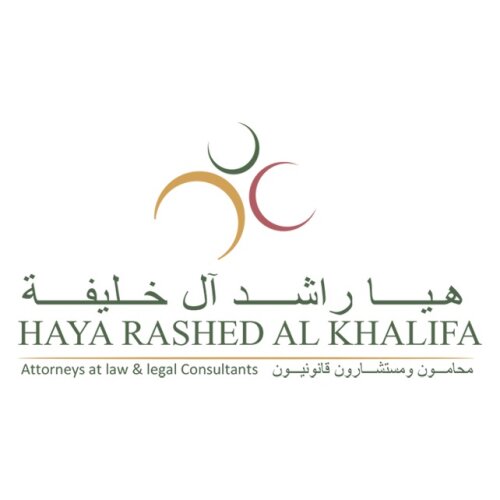Best Inheritance Law Lawyers in Manama
Share your needs with us, get contacted by law firms.
Free. Takes 2 min.
List of the best lawyers in Manama, Bahrain
1. About Inheritance Law in Manama, Bahrain
Inheritance law in Manama operates under two broad systems. Muslims generally follow Islamic Sharia rules for sharing a deceased person’s estate. Non-Muslims may be governed by civil law provisions or local personal status rules applied by Bahraini courts.
In practice, estate administration in Manama often involves wills, intestate succession, probate procedures, and the distribution of assets such as real estate, bank accounts, and shares. Clients typically work with an advocate or legal counsel who understands both Sharia concepts and Bahraini civil procedure. The process can require court certificates, title deeds, identification documents, and death certificates.
The goal of inheritance law is to determine who receives which assets and in what proportion, while ensuring proper guardianship arrangements for minors when needed. Given the mix of religious and civil frameworks, many cases hinge on accurate documentation and timely filing with the Bahraini judiciary. Understanding local practice helps you set realistic expectations for outcomes and timelines.
2. Why You May Need a Lawyer
The following scenarios reflect common, real-world needs in Manama that typically require professional legal help from a Bahraini advocate or legal counsel.
- You are the surviving spouse or child and there is a dispute over shares under Sharia inheritance rules. A lawyer can explain fixed Quranic shares and how they apply to your case in Bahrain.
- A will exists but you need to validate its validity, interpret its terms, or resolve conflicts with intestate succession. An advocate can help with will execution and court approvals.
- There are assets in Manama’s real estate market and a disagreement among heirs about who should hold title or manage property during the estate settlement.
If you are handling cross-border assets or a deceased with assets both inside and outside Bahrain, you should consult a Bahraini solicitor who understands local court procedures and cross-jurisdiction issues. For non-Muslim heirs, civil law provisions may apply differently from Sharia rules, making professional guidance essential. Guardianship and trust arrangements for minor heirs are complex and often require urgent court involvement.
Engaging a local advocate early helps you navigate filings, deadlines, and potential mediation options. A Bahraini lawyer can also advise on whether to pursue formal probate, mediation, or arbitration to resolve disputes efficiently. Professional counsel reduces the risk of overlooked documents or procedural mistakes that could delay the estate settlement.
3. Local Laws Overview
Bahrain applies a combination of Sharia rules for Muslim heirs and civil law mechanisms for others. Important sources include the Islamic inheritance framework and the civil statutes governing wills and estates. The exact shares and procedures depend on the heirs involved, their relationships, and their religious status.
The primary framework you should understand includes Sharia inheritance principles used in Bahraini courts and two civil law components commonly referenced in practice: the Personal Status Law and the Civil Code provisions on estates and wills. These sources guide how courts determine entitlement, deadlines, and administrator appointments.
Recent developments include government efforts to digitize certain inheritance filings and case management. Since 2019, Bahrain has expanded online services through the MOJ for some family and inheritance processes to improve efficiency and transparency. These changes are intended to streamline submission of documents and tracking of case progress.
According to Bahrain's Ministry of Justice, Islamic inheritance rules are applied to Muslim heirs through the Personal Status framework in the courts.
The Bahraini government has introduced e-services to automate certain inheritance filings, enhancing accessibility for residents and heirs.
In non-Muslim cases, civil code provisions on wills and estates guide the administration and distribution of assets under Bahraini civil law.
4. Frequently Asked Questions
What is inheritance law in Bahrain?
Inheritance law in Bahrain combines Sharia rules for Muslims and civil law provisions for others. Courts apply established shares and procedures to distribute assets after death. Legal counsel can explain how these rules apply to your situation.
How do I start probate or estate settlement in Manama?
Contact a Bahraini advocate to assess documents, identify heirs, and file the petition with the appropriate court. You will typically need death certificates, title deeds, ID documents, and wills if any. Your lawyer guides you through filing and timelines.
What is the role of an advocate in inheritance matters?
An advocate advises on rights and shares, prepares filings, negotiates among heirs, and represents you in court. They coordinate with the judiciary on probate, guardianship, and asset distribution. You should select a lawyer with experience in inheritance and family law.
How much does it cost to hire a lawyer for inheritance matters?
Fees vary by complexity and region, but expect consultation fees plus possible hourly rates for court work. Some firms offer fixed or capped fees for straightforward filings. Request a written estimate before engaging legal services.
How long does an inheritance case typically take in Bahrain?
Timelines depend on case complexity and court backlogs. Simple matters may take several months; complex disputes can extend to a year or more. Your advocate can provide a more precise estimate after an initial review.
Do I need a Bahraini lawyer if I am a non-resident?
Yes. Local knowledge of Bahraini procedures and court practice is essential. A Bahraini advocate can manage filings, translations, and liaison with authorities on your behalf.
Can a will be challenged in Manama?
Yes. If there is evidence of coercion, fraud, invalid signatures, or non-compliance with formal requirements, a will can be challenged. An attorney can help prepare opposition or defense strategies.
What is the difference between Sharia shares and a will in Bahrain?
Sharia shares follow fixed Quranic proportions among legal heirs. A will allows a testator to allocate up to one third of remaining assets as he or she wishes, subject to certain restrictions. A lawyer explains how each option affects your estate.
Is there a time limit for filing inheritance claims?
Time limits exist for certain court filings and appeals, and delays can affect remedy options. Your lawyer can map the filing deadlines based on your case type and court order.
Where can I find official guidance on inheritance procedures in Bahrain?
Official guidance is available through Bahrain's government portals and the Ministry of Justice. These sources provide forms, procedural steps, and contact information for courts and registries.
Should I appoint an executor or administrator for the estate?
Appointing an executor or administrator helps manage asset collection, debts, and distribution. Your lawyer can advise on appointment, duties, and best practices under Bahraini law.
Do I need documentation like death certificates, marriage certificates, or title deeds?
Yes. Standard documents include death certificates, family records, marriage certificates, birth certificates, and land or asset titles. Your advocate will compile a complete list tailored to your case.
5. Additional Resources
- Ministry of Justice, Islamic Affairs and Endowments (MOJ) - Oversees family law, personal status matters, and inheritance procedures in Bahrain. Official functions include processing filings and administering related court matters. https://www.moj.gov.bh
- GOV.BH - Bahrain Official Portal - Provides official guidance, forms, and service information for wills, estates, and inheritance procedures. https://www.gov.bh
6. Next Steps
- Identify your status and the type of assets involved in the estate to determine which legal framework applies. This helps you choose the right advocate in Manama. Timeframe: 1-3 days.
- Gather essential documents such as death certificate, ID papers, property deeds, and any will or testament. Create a comprehensive file for your initial consultation. Timeframe: 1-2 weeks.
- Find a Bahraini advocate with inheritance and family law experience. Schedule an initial meeting to assess your case and fees. Timeframe: 1-2 weeks.
- Have your advocate review assets, heirs, and potential disputes. Decide whether to pursue probate, mediation, or court action. Timeframe: 2-6 weeks.
- Prepare and file the required petitions or applications with the appropriate Bahraini court or MOJ unit. Your lawyer coordinates translations and certifications as needed. Timeframe: 4-12 weeks.
- Attend any required mediation or court hearings. Follow your advocate’s guidance on evidence and testimony. Timeframe: 2-6 months depending on complexity.
- Obtain final estate distribution orders and register transfers with relevant registries or land bureaus. Complete asset transfers and close the matter. Timeframe: 1-3 months after orders.
Lawzana helps you find the best lawyers and law firms in Manama through a curated and pre-screened list of qualified legal professionals. Our platform offers rankings and detailed profiles of attorneys and law firms, allowing you to compare based on practice areas, including Inheritance Law, experience, and client feedback.
Each profile includes a description of the firm's areas of practice, client reviews, team members and partners, year of establishment, spoken languages, office locations, contact information, social media presence, and any published articles or resources. Most firms on our platform speak English and are experienced in both local and international legal matters.
Get a quote from top-rated law firms in Manama, Bahrain — quickly, securely, and without unnecessary hassle.
Disclaimer:
The information provided on this page is for general informational purposes only and does not constitute legal advice. While we strive to ensure the accuracy and relevance of the content, legal information may change over time, and interpretations of the law can vary. You should always consult with a qualified legal professional for advice specific to your situation.
We disclaim all liability for actions taken or not taken based on the content of this page. If you believe any information is incorrect or outdated, please contact us, and we will review and update it where appropriate.









